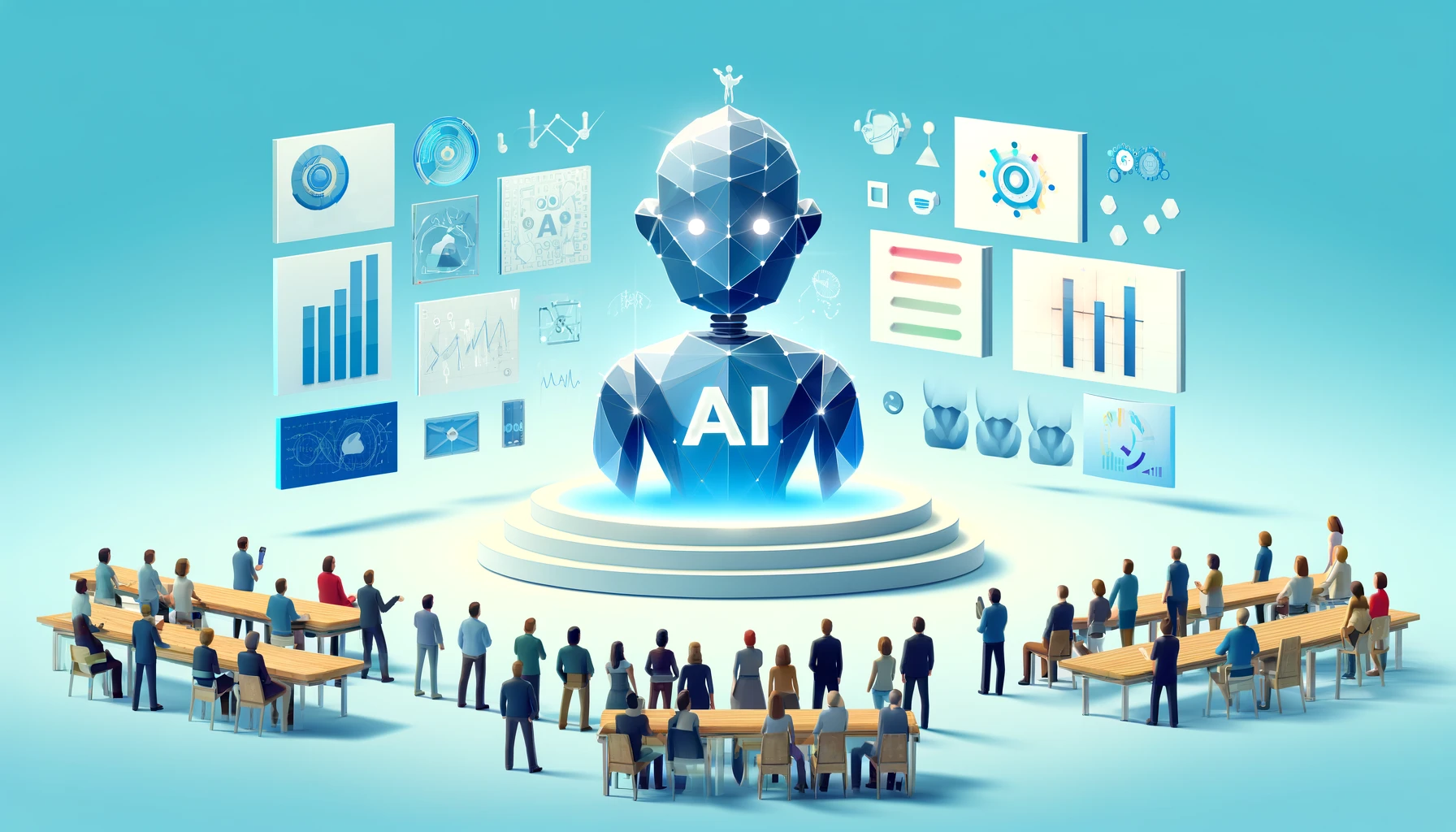We are on the cusp of a technological renaissance. Artificial intelligence, once a futuristic concept relegated to science fiction, is rapidly becoming an integral part of our daily lives. This isn’t just about algorithms working behind the scenes; we’re witnessing the rise of personal intelligence, a new breed of AI that understands us, anticipates our needs, and empowers us to achieve more than ever before.
This paradigm shift is evident in the latest wave of technological advancements, particularly in how we interact with our devices. Imagine a world where your smartphone, tablet, and computer seamlessly collaborate to streamline your daily tasks, amplify your creativity, and even anticipate your next move. This is the promise of personal intelligence.
Redefining Productivity: AI as Your Thought Partner
One of the most profound impacts of personal intelligence is its ability to transform how we work and communicate. No longer are we limited by the linear nature of traditional writing tools. AI is evolving into a true thought partner, capable of elevating our writing, refining our ideas, and ensuring our message resonates with clarity and impact.
Imagine this: you’re drafting an important email, but the words feel jumbled, lacking the professional finesse you’re aiming for. With the power of personal intelligence, you can instantly rephrase sentences, adjust the tone to be more formal or friendly, and even receive grammar and style suggestions – all while retaining your authentic voice.
This level of AI assistance extends far beyond email. Whether you’re crafting a compelling presentation, summarizing lengthy research papers, or organizing your thoughts in a note-taking app, personal intelligence acts as an ever-present editor and collaborator, helping you communicate more effectively and efficiently.

Unleashing Creativity: From Imagination to Reality in Seconds
The fusion of AI and creativity is perhaps one of the most exciting aspects of this technological evolution. Personal intelligence is breaking down the barriers between imagination and creation, empowering us to express ourselves in ways we never thought possible.
Consider the simple act of sending a text message. Instead of relying on generic emojis to convey emotions, imagine typing a description like “a surprised cat wearing a monocle” and having a unique, personalized emoji instantly generated. This is the power of AI-driven image creation tools.
This ability to translate abstract ideas into visual representations extends far beyond emojis. Imagine sketching a rough concept for a logo or illustration and having AI transform it into a polished, professional-grade image with just a few taps. This seamless integration of AI into creative workflows empowers both professionals and casual users to bring their visions to life with unprecedented ease and flexibility.
Beyond Voice Commands: A New Era of Intuitive Interaction
For years, voice assistants have promised a future where we can interact with technology using natural language. However, early iterations often fell short, struggling with complex commands or misinterpreting our requests. Personal intelligence is poised to change that, ushering in a new era of intuitive and conversational interactions with our devices.
Imagine asking your voice assistant a question like, “What’s the weather like at the park where I took that photo last week?” and receiving an accurate, context-aware response. This level of understanding requires AI that can not only comprehend spoken language but also analyze data from various sources, including your location history, photos, and calendar events.
This deeper integration of AI into our devices allows for a more personalized and proactive user experience. Imagine receiving a notification reminding you to pick up flowers on your way home because your calendar indicates it’s your anniversary, or having your phone automatically suggest relevant documents based on your upcoming meeting agenda. These are just a few examples of how personal intelligence can anticipate our needs and seamlessly integrate into our daily routines.

The Privacy Imperative: Building Trust in the Age of AI
As AI becomes increasingly intertwined with our lives, it’s crucial to address the elephant in the room: privacy. The very nature of personal intelligence relies on access to our data – our communications, habits, and preferences. This raises valid concerns about how this information is being used and protected.
The good news is that privacy is no longer an afterthought in the development of AI. Leading tech companies are prioritizing privacy-preserving techniques, ensuring that personal data remains secure and under user control.
One approach is on-device processing, where AI computations are performed locally on your device rather than being sent to remote servers. This minimizes the amount of data that needs to be shared, keeping sensitive information within your personal sphere of control.
For more complex AI tasks that require greater computational power, companies are exploring innovative solutions like private cloud computing. This approach allows for the use of powerful server-based AI models while implementing robust security measures to protect user data. These measures might include anonymizing data, limiting data retention periods, and allowing for independent audits to verify privacy practices.
The Future is Personal: Embracing the AI Revolution
The convergence of artificial intelligence and personal technology is not just an incremental step forward; it’s a fundamental shift in how we interact with the digital world. Personal intelligence has the potential to revolutionize our lives, from boosting our productivity and unleashing our creativity to simplifying our daily routines and enhancing our overall well-being.
As with any transformative technology, it’s essential to approach this new era with a balance of excitement and awareness. By demanding transparency, prioritizing privacy, and engaging in informed discussions about the ethical implications of AI, we can ensure that this powerful technology is harnessed for good, empowering us to lead more fulfilling and productive lives.

